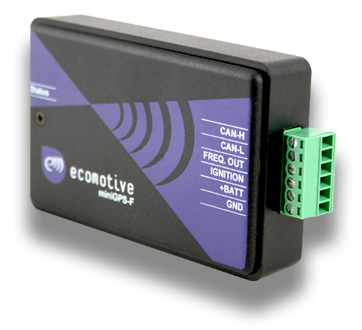Fuel Monitoring Systems and Accesories
GPS-based AVL device with Fuel Level probe
Ecomotive AVL devices are terminal equipment for navigation and data collection that transfer the collected data to the server using the GSM network. They are well suited for asset tracking and real-time vehicle location. The data includes the location, speed, battery level, fuel level and various others. The equipment has several inputs and outputs usable for various purposes. Its receiver uses a double constellation receiver capable of producing quality signals even in heavily populated urban areas.
Ecomotive AVL devices come in 3 different flavors: microGPS for tracking only, miniGPS for tracking and fuel level monitoring and midiGPS for supporting special functionalities like remote Tachograph download, Bluetooth or RF connectivity and CAN/FMS/OBD II compatibility:
Capacitive sensors can be attached for continuous level measurements of any non-ionic fuel. These sensors offer excellent stability for temperatures ranging from -20 to +50 °C, delivering excellent measurement repeatability and are connected through a RS485 interface impervious to all kind of misconnections on any of its pins.
The sensors are manufactured in three standard lengths: 30, 70 and 120 cm and each of them can be cut down to 60% of their original length. Sensors are supplied with Viton gaskets and a mounting flange.
DieselMeter is a continuous level measurement device based on the capacitive sensor principle. This device is ideal for fuel monitoring level of reservoirs on any vehicle.
The DieselMeter can be used for up to three reservoirs – two connected and one independent or three independent. These sensors are equipped with a very robust RS485 interface capable to tolerate all kind of misconnections on all of its pins. Each sensor is individually calibrated to offer excellent stability over temperature variations.
Fuel Monitoring Specifications
Improve
- Consumption
- Temperature monitoring and registration
- Communication cost
- Cost control for multi-driver vehicles
Reduce
- Fuel frauds
- Deteriorated goods
- Phone bill
- Cost reporting
- Monitor your fuel level on the fly
- Automated refuel and high level drop detection
- Robust design with IP68 compliance
- Easy and cost-effective messaging
- Messaging history
- Unattended temperature increase recording
- Live monitoring of goods temperature data
- Easy vehicle sharing between cost centers





